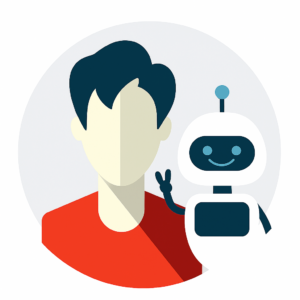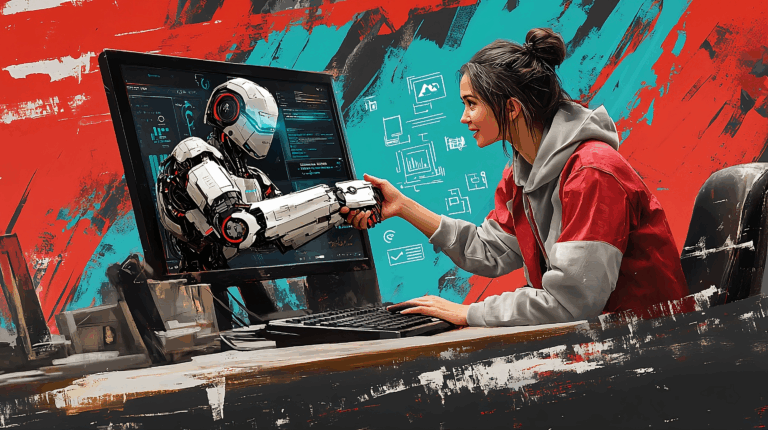AI and automation are reshaping the global workforce. As machines take over repetitive and predictable tasks, we’re witnessing a major shift in the job market. According to the World Economic Forum’s Future of Jobs Report 2025, 92 million jobs are expected to be displaced, but the good news is that 170 million new roles will be created.
This transformation makes reskilling and upskilling a necessity. People from all backgrounds are seeking new professions and the skills needed to thrive in the AI era.
This blog explores who is making the leap to tech in 2025 and how they’re preparing for tech careers.
Teach a Man to Code, and He’ll Eat for a Lifetime
A wise person once said: When the economy gets tough, the tough hit the books. Where the tech skills gap is widening and the digital workplace is expanding, one of the smartest moves anyone can make is to enroll in tech training programs that lead to high-demand, well-paying jobs.
But it takes a special kind of grit to hit pause on your current path and commit to learning an entirely new profession. Even in the best-case scenario, completing a tech training program takes months of focused effort.
So, who are the bold individuals choosing to reskill and become tech professionals in 2025?
The Profiles of Tech Training Students
1. Recién licenciados y diplomados
Many academic degrees simply aren’t practical. Fancy degrees, even from the most prestigious institutions, don’t necessarily equal employability. That goes double in an economic downturn when there can be hundreds of experienced applicants for even entry- level positions. Some of these graduates are looking to tech training as a solution to their woes. Eager to begin their careers, they want practical training in high-paying, high-demand professions.
“I must have sent out hundreds of resumes. No one seems to want to interview a liberal-arts major with no experience. I bit the bullet and enrolled in a Data Analyst program when I realized that it’s hard to find great job opportunities in this sort of economy.” - Lindsay J., Raleigh2. Los desempleados
Getting fired sucks, but like Alexander Graham Bell said, “when one door closes, another opens”. Unemployment gives you the opportunity to recalculate your career paths, not to mention freeing up the time needed to do so. For those who always dreamed of going into tech, getting fired may be the best thing to ever happen to them. In recent years, major companies like Microsoft, Amazon, and Bloomberg have laid off thousands of employees as they shifted operations and streamlined roles due to AI adoption. While these moves signal disruption, they also highlight where the world is heading, and tech professionals are in high demand. The more ambitious are now looking to capitalize on that demand, especially as they realize there’s no need for a 3–4 year degree or massive tuition to break in.
“When I got my termination letter, I was in total shock. I didn’t know what to do. But after I managed to relax, I realized that getting fired was a blessing in disguise -- I never liked my job and always dreamed about becoming a software developer, but with a full-time job I could never find the time to check what's required to get there.” - Francis D., Paris 3. Workers replaced by AI
3. Workers replaced by AI
From customer service reps and data entry clerks to paralegals and content writers, many jobs once considered safe are now being automated. Watching your role get handed over to an algorithm or chatbot can feel frustrating. But many are choosing to pivot, not panic. Instead of resisting the wave of change, they’re reskilling to tech roles that are less likely to be replaced and more likely to work with AI rather than against it. These individuals are learning to code, analyze data, or even build AI tools themselves.
“I was working in content moderation, but when the company brought in a new AI system, half of our team was let go. It was scary, but I didn’t want to be at the mercy of tech anymore, I wanted to understand it. So I enrolled in a Frontend Developer program. Now I’m learning the skills to stay ahead and build a better future for myself.” - Joel S., Berlin 4. Millenials
4. Millenials
Millennials came of age during the 2008 financial crisis and are now in a place shaped by economic uncertainty, rising costs of living, and rapid technological change. Many feel stuck in unstable jobs with little growth or fulfillment. They often see higher education as an unnecessary expense and often choose to skip school, unless that is, they find a program that is relatively short, complements their personality and lifestyle, and helps them get to where they want to go.
“There was no way I was going to take out tens of thousands of dollars in student loans to waste four years partying with jocks and cheerleaders. I’m more about jumping into the job market so that I can make enough money to do my art.”- Mike F., Williamsburg 5. Empresarios y autónomos
5. Empresarios y autónomos
Startup founders and independent contractors are always chasing the next big thing, and in 2025, that means AI. Rather than replacing them, AI is actually creating new opportunities for innovation, product development, and disruptive startups. Founders want to prototype faster and automate early processes. Freelancers are expanding their skill sets to meet the growing demand for AI-powered, tech-savvy services. Although AI can now handle a lot of tasks, it can’t do everything without humans. Tools still need creative direction, strategic thinking, and technical understanding to deliver real value.
“As a freelance digital marketer, I figured I could easily double my income by learning design and AI tools. Sure, AI can generate a lot of stuff, but only if you know how to guide it. Now I don’t just run the ad campaigns, I design the creatives and use AI to scale results. I offer an end-to-end service that’s faster, smarter, and way more profitable.” — Nikola M., Belgrade6. Alumnos en línea y participantes en el Bootcamp
Cursos abiertos masivos en línea (MOOC) and micro-credentials can only get you so far. Many participants of these types of crash courses realize that short courses and on-demand online training get them a first interview at best. These job seekers are looking to take the skills they’ve begun developing to the next level and move on to training centers that specialize in tech reskilling to do just that.
“I thought that completing a Coursera course would pave my way into tech. I was wrong. I couldn’t even complete the test exercise that I was given by a potential employer. Without serious, intensive training that includes homework, exercises, and projects beyond watching an online class, it is nearly impossible to land a tech position.” - Ramesh Patel, Pune
Wawiwa’s Reskilling Approach
Wawiwa is a global tech education provider, offering AI-proof Programas de reciclaje y cursos de perfeccionamiento tailored to the latest industry trends.
No sólo enseñamos IA, también respiramos IA. Incorporamos la IA siempre que podemos -en todas nuestras ofertas de formación, métodos de enseñanza y procesos internos- para mantenernos al día de las tendencias del sector y satisfacer las demandas siempre cambiantes de nuestros socios y alumnos de todo el mundo.
Ofrecemos programas de reciclaje tecnológico en áreas como Desarrollo Full-Stack, Análisis de datosy Ciberseguridad – making people job-ready in just 6-9 months, even without any prior experience. Over 70% of Wawiwa graduates land a tech job within 2 months of graduation. Our programs are designed for career changers who want to break into the tech industry quickly and effectively.
Para los profesionales ya en activo, ofrecemos cursos de perfeccionamiento en AI, Desarrollo de software, Análisis de datosy Ciberseguridad. Estos cursos le ayudarán a seguir siendo competitivo, a perfeccionar sus conocimientos y a desarrollar su carrera profesional en un panorama tecnológico en rápida evolución.
The potential market for reskillers is endless. The six profiles of people mentioned, and dozens of other types out there, are looking for an effective way to reskill to tech. We’re hopeful that many of them will succeed and get to the holy grail, a tech career that they’d enjoy and would support them and their families in any economic condition.






